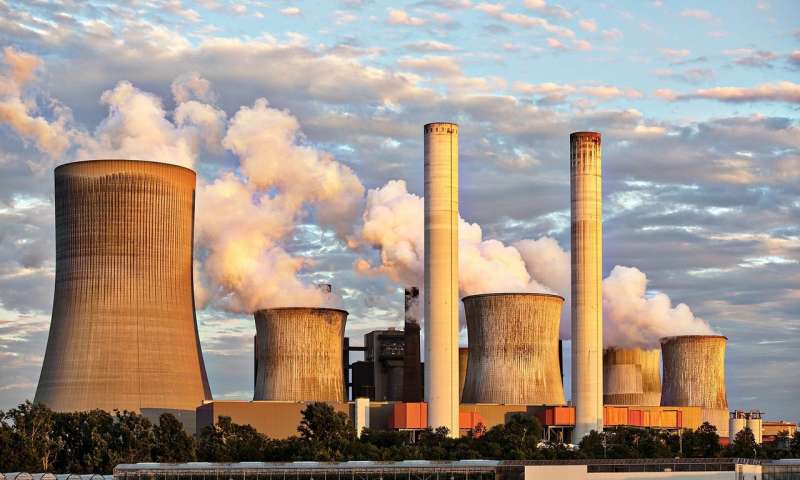Context-
The global discourse on climate change mitigation has intensified over recent years, spurred by the urgency to address the adverse impacts of fossil fuel extraction and consumption on the environment. As nations grapple with the complexities of transitioning away from fossil fuels, equity concerns emerge as a critical consideration.
Implications of Banning Fossil Fuel Extraction
● Banning fossil fuel extraction entails profound implications for global economies, environmental sustainability, and social welfare. The growing momentum toward phasing out fossil fuel subsidies and advocating for a Fossil Fuel Non-Proliferation Treaty underscores the urgency of addressing climate change. The Production Gap Report (PGR) 2023 underscores the stark misalignment between fossil fuel production plans and the goals of the Paris Agreement, necessitating decisive action to curtail extraction.
● The United Nations Framework Convention on Climate Change (UNFCCC) has taken significant steps to address fossil fuel dependency, as evidenced by references to phasing down coal power and subsidies in COP26 and COP28 deliberations. However, the challenge lies in reconciling these proposals with the principles of Common but Differentiated Responsibilities and Respective Capabilities (CBDR-RC) and Nationally Determined Contributions (NDCs).
● The imperative to mitigate climate change through fossil fuel phase-out is underscored by environmental imperatives. The Paris Agreement's long-term temperature goal necessitates a paradigm shift away from unabated fossil fuel production. However, the equitable distribution of burdens and benefits remains a contentious issue, particularly concerning countries heavily reliant on fossil fuel revenues.
● The economic and social impacts of banning fossil fuel extraction are significant, particularly for developing nations reliant on fossil fuel revenue streams. Countries such as Canada, the United States, and the United Kingdom exhibit greater economic diversification and per capita income, affording them greater capacity to transition away from fossil fuels. In contrast, countries like Azerbaijan, Congo, and Nigeria face formidable challenges due to limited economic diversification and dependence on fossil fuel revenues.
International Legal Framework and Fossil Fuel Extraction
The international legal framework governing fossil fuel extraction is anchored in principles of sovereignty, equitable resource utilization, and prevention of transboundary harm. While states possess the sovereign right to exploit natural resources within their territories, this right is tempered by obligations to prevent significant harm to neighboring states and the global environment.
● Sovereignty and Transboundary Obligations: The principle of sovereignty underscores a state's right to utilize natural resources for economic development. However, this right is circumscribed by obligations to prevent transboundary harm, necessitating due diligence in assessing the environmental impacts of extractive activities. The International Court of Justice's Pulp Mills Case established the precedent for conducting transboundary Environmental Impact Assessments (EIAs), although its applicability to global commons remains uncertain.
● Equity and Human Rights Considerations: Equity considerations in fossil fuel extraction extend beyond environmental impacts to encompass human rights considerations, particularly in indigenous and marginalized communities. The UN Declaration on the Rights of Indigenous Peoples underscores the importance of free, prior, and informed consent in extractive activities, highlighting the need for equitable decision-making processes.
India's Dilemma: Balancing Development and Environmental Imperatives
India's energy landscape presents a complex interplay of development imperatives, environmental sustainability, and socio-economic equity. While India has made strides in renewable energy adoption, fossil fuels continue to dominate the energy mix, reflecting the country's energy security concerns and developmental priorities.
● Economic Realities and Transition Challenges: India's heavy reliance on fossil fuels, particularly coal, is driven by energy security concerns and the imperative to meet growing energy demands. However, the transition away from fossil fuels poses significant economic and social challenges, particularly in coal-dependent regions where livelihoods are intricately linked to the mining and power sectors.
● Equity Considerations and International Obligations: India's stance on fossil fuel phase-out reflects a nuanced understanding of equity considerations and international obligations. The country's interventions at COP26 underscored the need for differential treatment and transition support for developing nations grappling with the impacts of climate change and fossil fuel dependence. India's subsidies on kerosene oil, while criticized for inconsistency with the Paris Agreement, reflect the complex interplay of domestic socio-economic priorities and international commitments.
Conclusion
Addressing the equity concerns associated with banning fossil fuel extraction requires a nuanced understanding of international legal frameworks, economic realities, and environmental imperatives. While there is growing momentum towards phasing out fossil fuels, particularly in the wake of the Paris Agreement, equitable transition mechanisms must be put in place to support countries heavily reliant on fossil fuel revenues and employment.
Developed countries must recognize their historical responsibilities and provide assistance to developing nations in transitioning to cleaner energy sources. This assistance should include financial support, technology transfer, and capacity-building initiatives aimed at fostering sustainable development.
Furthermore, the international community must engage in meaningful dialogue to reconcile conflicting interests and find common ground on issues related to fossil fuel extraction and climate change mitigation. Only through collaborative efforts and a commitment to equity can we hope to address the existential threat posed by climate change and ensure a sustainable future for generations to come.
|
Probable Questions for UPSC Mains Exam- 1. How do equity concerns influence the global discourse on banning fossil fuel extraction? Discuss the implications of fossil fuel phase-out for both developed and developing nations, considering economic, environmental, and social factors. (10 Marks, 150 words) 2. Analyze India's approach to fossil fuel phase-out in the context of its developmental priorities, international obligations, and equity considerations. Evaluate the challenges and opportunities associated with transitioning to cleaner energy sources, particularly in coal-dependent regions. ( 15 Marks, 250 Words) |
Source- The Hindu







